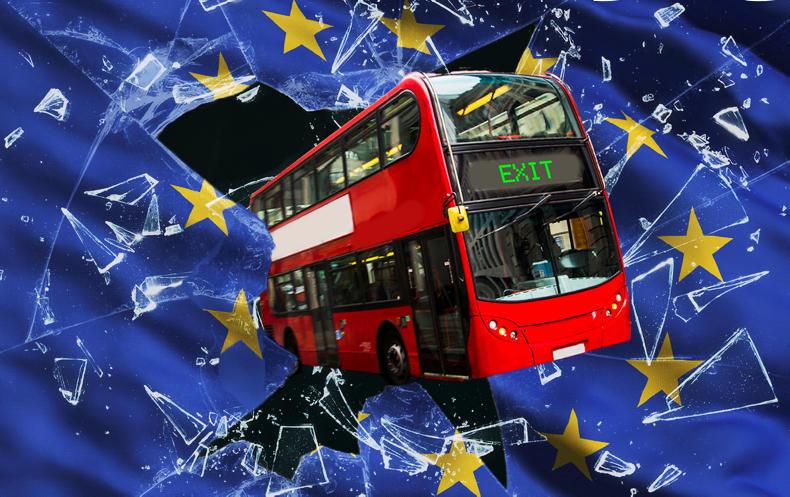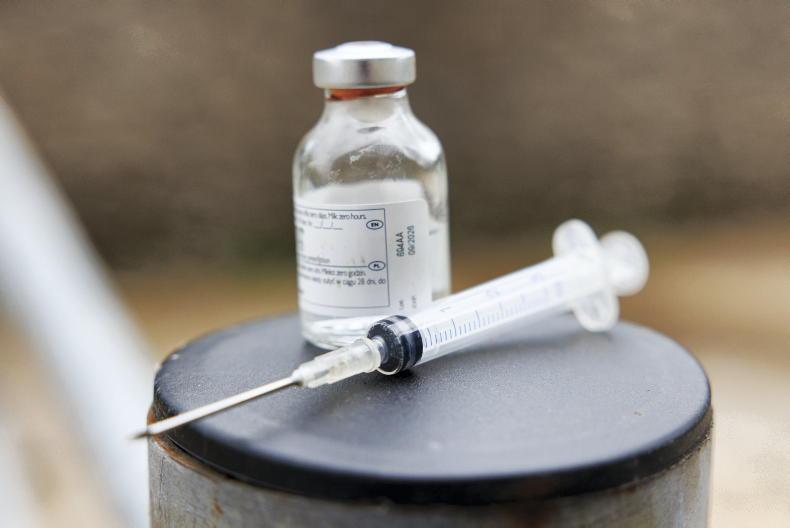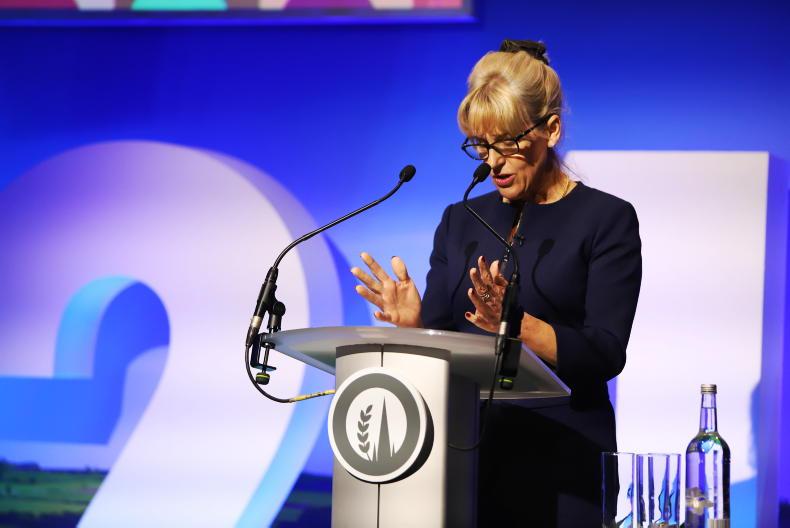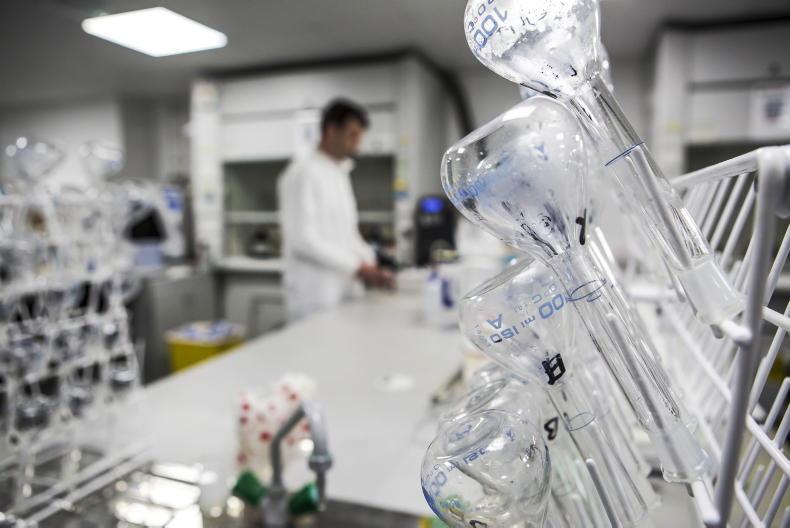The UK would maintain recognition of EU standards on products such as meat, dairy and vegetables in the case of a hard Brexit, the latest series of technical notices published by the British government show.
This reduces the risk of the UK border shutting down in the face of Irish agri-food exports if no deal is reached before 29 March 2019 – although the latest papers apply to sanitary rules only and do not deal with the prospect of tariffs and customs complications.
To ensure a smooth transition, the government would not introduce new requirements
"There would be no change on the day the UK leaves the EU to current import controls or requirements for notifications of imports of live animals and animal products for imports direct from the EU," the UK Department for Environment, Food and Rural Affairs (Defra) said.
These shipments are not currently recorded in the EU's TRACES trade database and "to ensure a smooth transition, the government would not introduce new requirements at the point the UK leaves the EU", Defra said.
For live exports, the UK will recognise the paperwork required of EU hauliers "for an interim period".
However, the notice states that some higher-risk EU livestock products and feeds currently regulated by the EU will need to transition to a new British system.
The UK is building its own registration system for imports of animals and animal products from non-EU countries, including those transiting through the EU and plans to start testing it in January.
The recognition of EU standards for imports into the UK is in stark contrast with the technical notice issued for export of British animals and livestock products to the EU, which warns of severe disruption.
Plant products
The UK has adopted a similar import position on plants and plant products, outlined in a separate technical notice.
"To deliver a smooth transition when we leave the EU, in a ‘no-deal’ scenario the government has decided that the majority of plants and plant products are low-risk and should continue to enter the UK from the EU freely, as they do now," Defra stated.
"Consignments of plants and plant products from EU countries would not be stopped at the border. The relevant UK plant health authority would carry out documentary and identity checks remotely. These checks would be charged for by the plant health authority."
The exception would be plants posing a higher biosecurity risk and currently regulated by the EU plant passport regime.
Those will need UK authorisation and will be subjected to border inspections.
Veterinary medicines
Trade would become more difficult for livestock pharmaceuticals.
Irish manufacturers of veterinary medicines would need a legal presence in the UK and lodge separate applications in the EU and the UK if they want to introduce new drugs to the British market after a hard Brexit.
While products currently licenced in the EU will continue to be authorised in the UK, to introduce any changes to them "pharmaceutical companies would need to ensure they have an established location within the UK," Defra warned in a third notice.
Manufacturers would need to provide the British authorities with data about new drugs before they can enter the UK.
"However, if a specific EU product, not authorised in the UK, was required for the treatment of an individual/group of animals, this could be obtained from a veterinary surgeon through the current Special Import Scheme," the notice adds.
Read more
Industry Insight: worst week of Brexit negotiations
Additional Brexit veterinary officials to cost almost €6m
More than Brexit in Brussels
The UK would maintain recognition of EU standards on products such as meat, dairy and vegetables in the case of a hard Brexit, the latest series of technical notices published by the British government show.
This reduces the risk of the UK border shutting down in the face of Irish agri-food exports if no deal is reached before 29 March 2019 – although the latest papers apply to sanitary rules only and do not deal with the prospect of tariffs and customs complications.
To ensure a smooth transition, the government would not introduce new requirements
"There would be no change on the day the UK leaves the EU to current import controls or requirements for notifications of imports of live animals and animal products for imports direct from the EU," the UK Department for Environment, Food and Rural Affairs (Defra) said.
These shipments are not currently recorded in the EU's TRACES trade database and "to ensure a smooth transition, the government would not introduce new requirements at the point the UK leaves the EU", Defra said.
For live exports, the UK will recognise the paperwork required of EU hauliers "for an interim period".
However, the notice states that some higher-risk EU livestock products and feeds currently regulated by the EU will need to transition to a new British system.
The UK is building its own registration system for imports of animals and animal products from non-EU countries, including those transiting through the EU and plans to start testing it in January.
The recognition of EU standards for imports into the UK is in stark contrast with the technical notice issued for export of British animals and livestock products to the EU, which warns of severe disruption.
Plant products
The UK has adopted a similar import position on plants and plant products, outlined in a separate technical notice.
"To deliver a smooth transition when we leave the EU, in a ‘no-deal’ scenario the government has decided that the majority of plants and plant products are low-risk and should continue to enter the UK from the EU freely, as they do now," Defra stated.
"Consignments of plants and plant products from EU countries would not be stopped at the border. The relevant UK plant health authority would carry out documentary and identity checks remotely. These checks would be charged for by the plant health authority."
The exception would be plants posing a higher biosecurity risk and currently regulated by the EU plant passport regime.
Those will need UK authorisation and will be subjected to border inspections.
Veterinary medicines
Trade would become more difficult for livestock pharmaceuticals.
Irish manufacturers of veterinary medicines would need a legal presence in the UK and lodge separate applications in the EU and the UK if they want to introduce new drugs to the British market after a hard Brexit.
While products currently licenced in the EU will continue to be authorised in the UK, to introduce any changes to them "pharmaceutical companies would need to ensure they have an established location within the UK," Defra warned in a third notice.
Manufacturers would need to provide the British authorities with data about new drugs before they can enter the UK.
"However, if a specific EU product, not authorised in the UK, was required for the treatment of an individual/group of animals, this could be obtained from a veterinary surgeon through the current Special Import Scheme," the notice adds.
Read more
Industry Insight: worst week of Brexit negotiations
Additional Brexit veterinary officials to cost almost €6m
More than Brexit in Brussels









SHARING OPTIONS